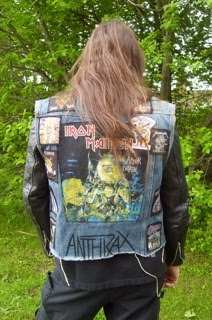Call for papers, International Association for the Study of Popular Music, Canadian Annual Conference 2011
Music functions as an agent for different types of environmental transformations whether they be social, economic or technological, with the reverse also being true: environmental changes can be heard in the music and sounds of our day. In recent academic discourse we have observed a turn towards the ecology of sound, which can imply political advocacy of the preservation of an environment's sonority. In a parallel gesture, use has been made of the environment in many artistic forums, such as sound sculptures and installations. This recent turn has opened up new areas of exploration for popular music as well, with the notion of place being of particular interest. We may consider, for example, the way in which specific places have an impact on the cultural meaning of music. Furthermore, popular music creates labels such as the “Liverpool” or “Montreal” sound which function as genre-like distinctions. But what does it mean to attribute such a label? Popular music also embraces musical and social hybridity via techniques such as sampling, quotation or imitation, influenced by factors such as travel, immigration and the recent virtual proximity of the Internet. The interrelationship of these musical, social, and technological elements is in turn affected by the economic environment, shaped by both changes in the cultural industries, such as the record industry meltdown, and the current global financial crisis. Our understanding of space and environment is neither simple nor static, and the relationship of these to music is extensive and complex.
We invite suggestions for individual presentations, panels, workshops or performances on a broad range of topics related to the theme of the conference, including, but not limited to, the following:
* Sampling as recycling and recontextualisation;
* Music and environmental activism;
* The life-cycles of musical technologies
* The turn towards urban forms of musical composition within the domain of acoustic ecology and soundscape studies;
* Ethnographic and "field" recordings as musical source material;
* "Expert" musical environments (critical, musical, journalistic, scientific, industrial, political, etc.), their roles, their interventions, their provisions;
* The creation of moods and of atmospheres in/by the music;
* Putting music in its environment, singing/composing its environment (sounding the scape);
* The alliances, affinities and networks allowing the constitution and development of different musical environments;
* Music and landscape, architecture and design;
* Movements, mobilities and trajectories of actors, of products, of groups, of catalogs, etc.;
* Music, time, duration, and memories;
* Natural catastrophes in songs and music
Abstracts for individual presentations, workshops, and performances must not surpass 300 words. Abstracts for panels must include a summary of 300 words or less for the panel as a whole, as well as abstracts not surpassing 300 words for each of the incorporated presentations. The programme committee reserves the right to accept a panel while refusing one of the proposed presentations or, on the other hand, to accept an individual presentation but to refuse the panel.
All abstracts must include a short biography (100 words or less) of the author(s), including institutional affiliation, and e-mail address. Every submission must equally include five words keys identifying the subject of the paper.
Please submit your abstract in French or English, depending on the language in which the paper will be presented by October 21, 2010 (for consideration for travel reimbursement) or November 15, 2010 (final deadline for all others) to IASPMMontreal@gmail.com
All proposals will be read blind and evaluated by the program committee.
The program committee consists of the following individuals:
▪ Dr. David Brackett, Professor, Musicology, McGill University
▪ Dr. Owen Chapman, Assistant Professor, Communication Studies, Concordia University
▪ Dr. Line Grenier, Associate Professor, Communication Studies, University of Montreal
▪ Mimi Haddon, Ph.D. Candidate, Popular Music Studies/ Musicology, McGill University
▪ Hélène Laurin, Ph.D. Candidate, Communication Studies, McGill University
▪ Dr. Martin Lussier, Postdoctoral Fellow, Faculty of Information and Media Studies, University of Western Ontario
▪ Dr. Charity Marsh, Canada Research Chair in Interactive Media and Performance, University of Regina
▪ Dr. Will Straw, Professor, Department of Art History and Communications Studies, McGill University
Papers will be limited to a standard 20-minute length followed by 10 minutes of questions, whereas other presentations will be limited to 60 minutes. All participants must be members of IASPM-Canada. Membership information is available on the following website: www.iaspm.ca
For questions about the conference, contact conference chair Will Straw, at william.straw(at)mcgill.ca
Submission deadlines:
October 21, 2010 (for consideration for travel reimbursement)
November 15, 2010 (final deadline for all others)
Applicants will be notified of the program committee’s final decisions by December 15, 2010.
Please send all submissions to: IASPMMontreal@gmail.com
Montag, 18. Oktober 2010
O Canada! Our home and native land! ...bzw. CfP IASPM Canadian Annual Conference 2011
Abonnieren
Kommentare zum Post (Atom)





Keine Kommentare:
Kommentar veröffentlichen